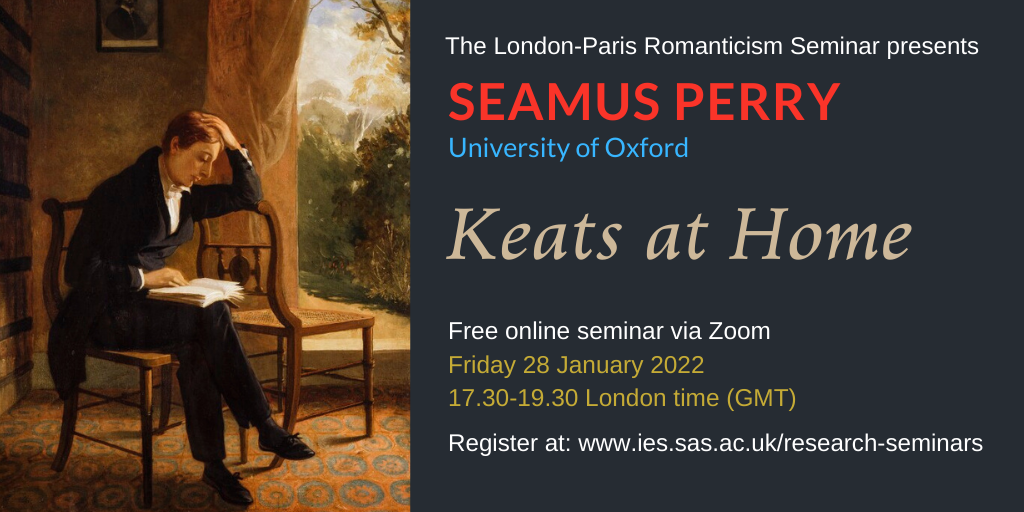
The next meeting of the London-Paris Romanticism Seminar will take place via Zoom on Friday 28 January 2022 at 17.30-19.30 London time (GMT). As our distinguished guest speaker, we are delighted to welcome Professor Seamus Perry of the University of Oxford, who will present a paper entitled Keats at Home. This will be followed by a discussion in which questions from the audience are invited. The seminar will be chaired by David Duff.
The seminar is free and open to everyone. Prior registration is necessary. To book a place via the Institute of English Studies website, click here. When you register, you will be provided with a Zoom link and details of how to join the online forum. Whether you wish to contribute or simply to listen in, we invite you to join us.
Seamus Perry is a Fellow of Balliol College and Professor of English Literature at the University of Oxford. His research lies mainly in the field of English Romantic poetry and thought, especially Coleridge and Wordsworth, and in post-Romantic English poetry, especially Tennyson, Eliot, Auden, Larkin and their circles. His publications include Coleridge and the Uses of Division (1999), an edited selection of Coleridge’s Notebooks (2003) and an edition of Matthew Arnold (2020) for OUP’s 21st-Century Oxford Authors series, of which he is the general editor. He also has an interest in the modern history of literary criticism, reflected in articles on A. C. Bradley, F. W. Bateson and M. H. Abrams and an edition of William Empson’s Some Versions of Pastoral (2020). He is co-editor of the journal Essays in Criticism and writes regularly for the London Review of Books, the Times Literary Supplement and the Literary Review. He is currently working on an intellectual biography of Auden and a volume of essays about poetry, Turning Verses. He is a Fellow of the English Association.
Regarding the topic of his paper, Seamus writes:
‘In “Keats at Home” I try and describe the domestic life of Wentworth Place, the Hampstead property now known as “Keats House”, at the time when Keats lived there, and I offer some speculations about the influence it may have had on the poetry he wrote while a resident.’